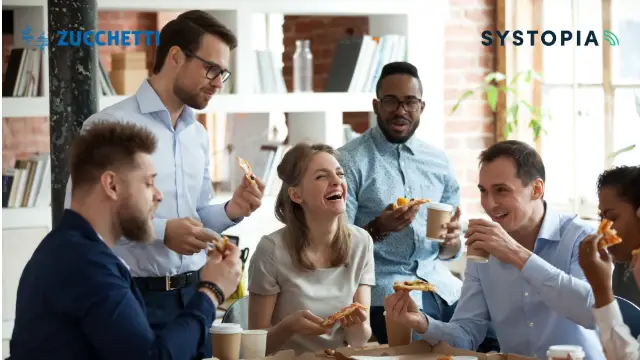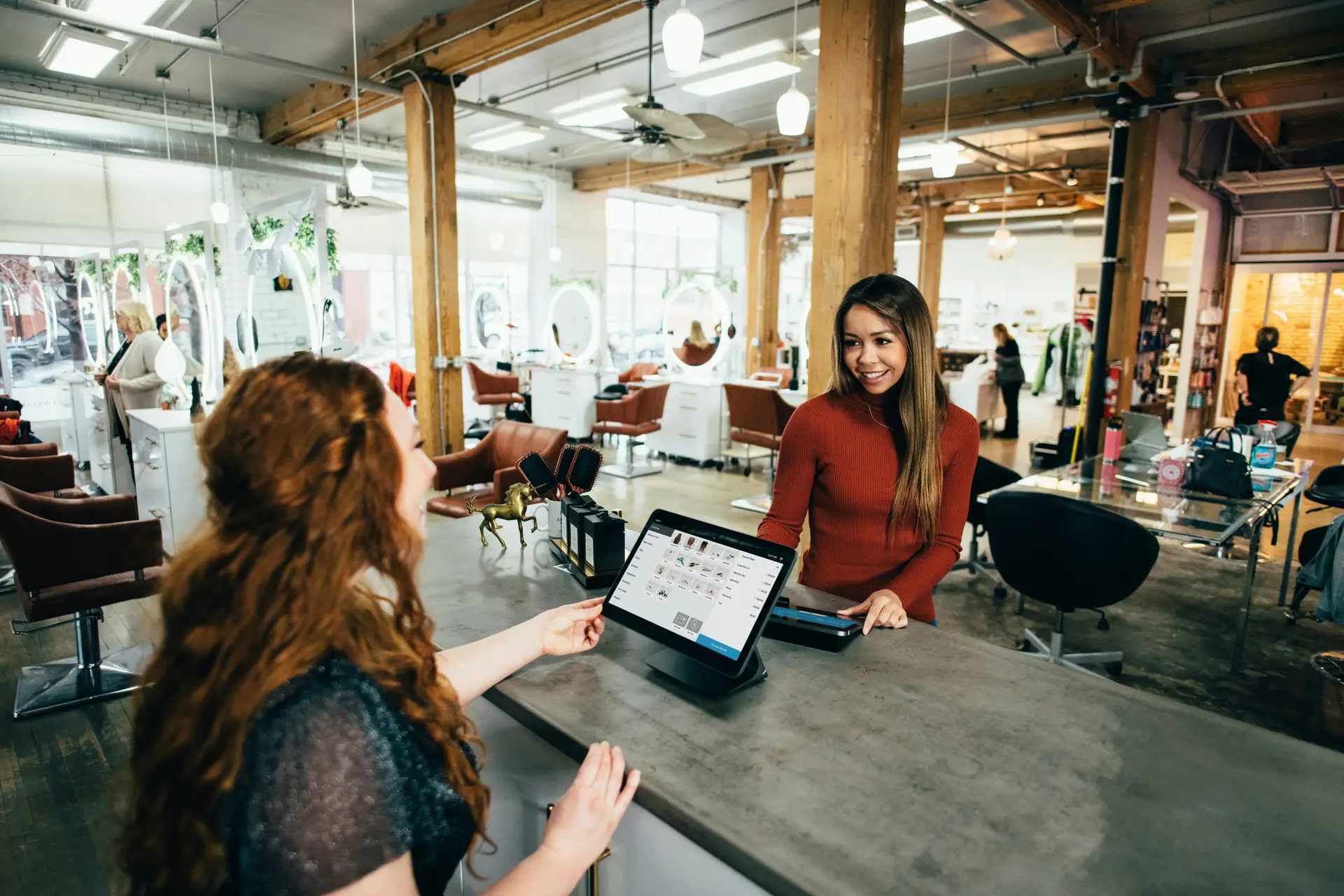Companies are increasingly realising the importance of creating a positive work environment that goes beyond just focusing on productivity. Employees want more than just a paycheck; they want to feel like they belong, be part of a supportive community, and have the chance to make meaningful connections with their colleagues. This is where corporate hospitality and workplace restaurants come in – they’re a strategic investment that can significantly impact an organisation by helping to build relationships and encouraging a culture of collaboration.
The Role of Shared Dining in Building Relationships
Throughout history, sharing a meal has held great social and cultural significance. It’s a universal language that connects people, cultivating bonding and understanding. This simple act can be a powerful way to develop connections and break down barriers between departments or hierarchical levels in the workplace.
When colleagues gather in a shared dining space, rank and role become less important, and a sense of camaraderie and shared experience takes over. Sharing a meal creates an environment where conversations flow more naturally, and individuals feel comfortable being themselves, beyond their professional personas.
This relaxed atmosphere encourages open communication, making it easier to exchange ideas, perspectives, and experiences that might not come up in more formal settings. It’s in these moments of authenticity that true connections are formed, laying the foundation for deeper understanding, trust, and collaboration among team members.
The Effect of Strong Workplace Relationships
Building strong workplace relationships through shared dining experiences has benefits that extend beyond the restaurant. When employees feel genuinely connected to their colleagues, it creates a positive shift within the organisation’s culture.
1. Improved Collaboration and Teamwork
Teams with strong interpersonal bonds can navigate challenges and tackle complex projects more effectively. Effective communication, trust, and mutual respect are the foundation for successful collaborations, enabling teams to leverage diverse perspectives and collective strengths to achieve remarkable outcomes.
2. Enhanced Creativity and Innovation
In environments where individuals feel valued and supported, they are more likely to take risks and share bold ideas without fear of judgment. This atmosphere of psychological safety creates an environment where creativity and innovation can thrive.
3. Increased Employee Engagement and Retention
When employees feel a genuine sense of belonging and connection to their colleagues, their commitment to the organisation deepens. They become more invested in the company’s success, leading to improved productivity, reduced absenteeism, and lower turnover rates.
4. Positive Brand Reputation
Companies that prioritise employee well-being and build a supportive, inclusive environment can enjoy a significant competitive advantage. A strong reputation as an employer of choice can attract top talent and cultivate brand loyalty among consumers who value ethical and socially conscious organisations.
Designing Workplace Restaurants for Connection
To fully realise the potential of workplace restaurants in building meaningful relationships, it is important to carefully consider the design and implementation of these spaces. Some key elements to consider include:
1. Inviting and Comfortable Ambiance
The physical environment plays an important role in setting the tone for relationship building. Workplace restaurants should be designed with warmth, comfort, and a sense of intimacy in mind. Thoughtful lighting, cosy seating arrangements, and tasteful decor can create an inviting atmosphere that encourages lingering and engaging conversations.
2. Leveraging Technology
In the workplace restaurant, technology remains a key asset for streamlining operations and enhancing the overall dining experience. Adopting self-service systems like self-checkout kiosks and reliable point-of-sale (POS) solutions improves the employee experience by optimising the workflow from food selection to payment, reducing queues and promoting efficiency.
These technologies allow employees to complete transactions swiftly and return to their meals promptly. This maintains food quality by reducing wait times and contributes to a more enjoyable dining experience.
3. Flexible Seating Options
While dedicated, assigned seating may be practical in some scenarios, offering flexible seating options can encourage organic interactions and enable employees from different teams or departments to mingle more freely. Varied seating configurations, such as communal tables, cosy nooks, and casual lounge areas, can cater to diverse social preferences and foster spontaneous connections.
4. Diverse and Inclusive Culinary Offerings
To cultivate a truly inclusive and welcoming dining experience, workplace restaurants should strive to offer a diverse range of culinary options that cater to various dietary preferences, cultural backgrounds, and personal tastes. This diversity accommodates the needs of a diverse workforce and serves as a conversation starter, fostering an appreciation for different cultural traditions and a sense of belonging for all employees.
4. Communal Gathering Spaces
Incorporating communal gathering spaces adjacent to the restaurant can facilitate informal socialisation and create a sense of community. These spaces could include cosy lounges, outdoor seating areas, or recreation rooms, providing employees with opportunities to connect beyond the confines of their workstations or meeting rooms.
5. Intentional Programming and Events
While organic connections are invaluable, intentionally curated programming and events within the workplace restaurant can further accelerate relationship building. Team-building activities, cultural celebrations, guest speaker events, or themed dining experiences can provide structured opportunities for employees to engage with one another in meaningful ways, fostering shared experiences and memories that strengthen bonds.
Overcoming Potential Challenges in Implementing Workplace Restaurants
While workplace restaurants offer numerous benefits in building relationships, their implementation comes with certain challenges. Potential hurdles may include the budget, logistics, and resistance to change from some employees who may initially view shared dining as an unnecessary distraction.
To address these challenges, organisations must adopt a strategic and inclusive approach. Conducting thorough cost-benefit analyses and seeking employee input during the planning stages can help garner buy-in and ensure that the workplace restaurant aligns with the organisation’s culture and values.
Effective communication and education are also necessary, highlighting the benefits of shared dining experiences in promoting collaboration, innovation, and overall employee well-being. By addressing concerns transparently and demonstrating a genuine commitment to creating a supportive and inclusive work environment, organisations can overcome resistance and pave the way for the successful integration of workplace restaurants.
By prioritising the creation of shared dining experiences, companies can empower their workforce to thrive, innovate, and collectively shape a brighter future.
Contact us to learn how our workplace restaurant solutions.











